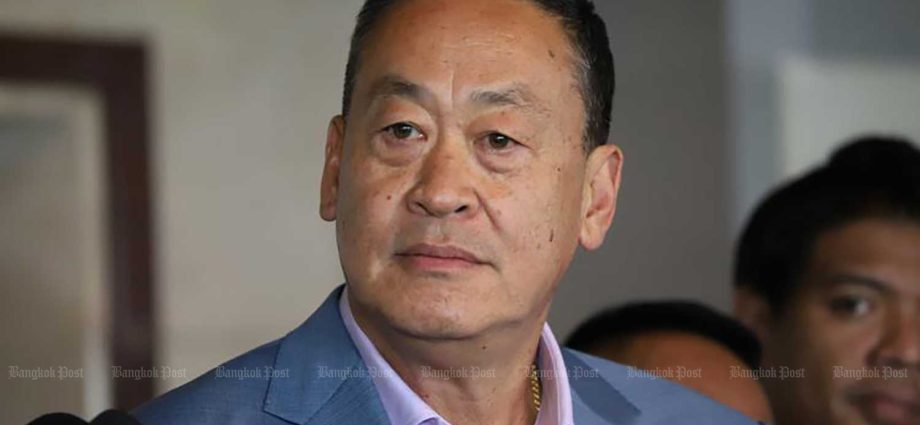
Srettha Thavisin, one of the Pheu Thai Party’s three prime minister candidates, has declared himself ready to become prime minister if he wins the trust of his party to take on the top job.
Mr Srettha was responding to questions asked amid rumours that he would be nominated for a new prime ministerial vote if Move Forward Party (MFP) leader Pita Limjaroenrat is unable to be re-nominated as a prime ministerial candidate for the joint sitting in parliament tomorrow.
“We at the Pheu Thai Party have discussed this matter for four months, and if I weren’t ready for the job, I would not have been named one of three prime ministerial candidates by the party,” he said.
However, he said a more pressing issue was to speed up the formation of a new coalition government and kick-start economic stimulus measures.
Many people are truly troubled by the slowing economy, Mr Srettha said, adding that Pheu Thai’s main responsibility was to take care of this urgent problem.
He said that free trade agreement talks and a feared shift of foreign investments from Thailand to neighbouring countries are among the priority issues that must be addressed promptly.
“I’m always a team player, and we [the Pheu Thai Party] are democratic. Whatever decision is reached by the party board, I will respect it,” he said.
Mr Srettha, however, declined to comment on the possibility of Pheu Thai switching sides and joining a rival bloc of parties, including Bhumjaithai and the Palang Pracharath Party, to form a new government, as has been speculated.
A Pheu Thai Party source said in the event Mr Pita is unable to be re-nominated for a prime ministerial vote or fails to garner enough votes in the joint sitting, Pheu Thai will first propose to defer the vote till next week, when it will then nominate Mr Srettha for prime minister.
Meanwhile, Deputy Pheu Thai leader Phumtham Wechayachai has urged the MFP to stay focused on how to succeed in forming a new coalition rather than being distracted by its latest campaign seeking to amend Section 272 of the constitution to terminate the Senate’s right to vote in a prime ministerial selection.
The lawmakers have tried at least six times to “switch off” the senators, but they could not muster sufficient support in parliament to push the amendment motion through.
Such a motion requires the approval of at least one-third of senators, or 84 senators, to pass the motion.
“Mr Pita couldn’t even muster 64 votes from senators in last week’s prime minister vote,” Mr Phumtham said.
He counts on Mr Pita to clarify when and how he intends to move the country forward amid the ongoing wrangle over the prime ministerial vote. The tourism sector, for instance, is eager to know when the new government will take office. The sector is concerned Thailand could be affected by the political uncertainty, Mr Phumtham said.

